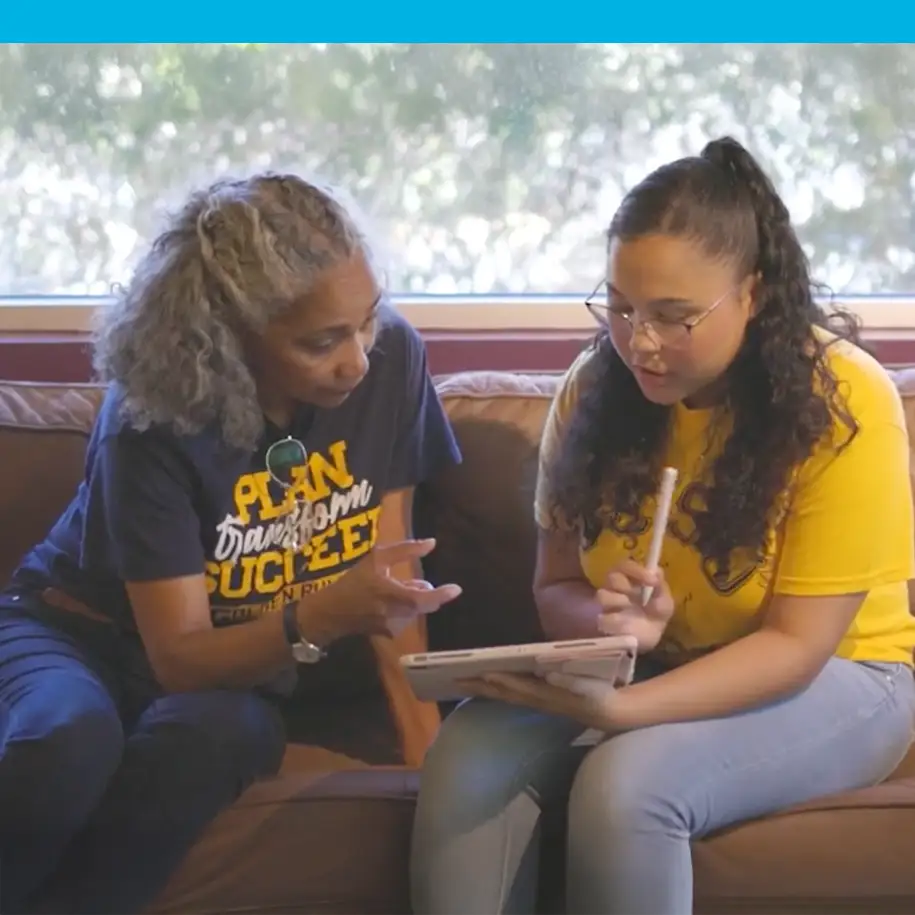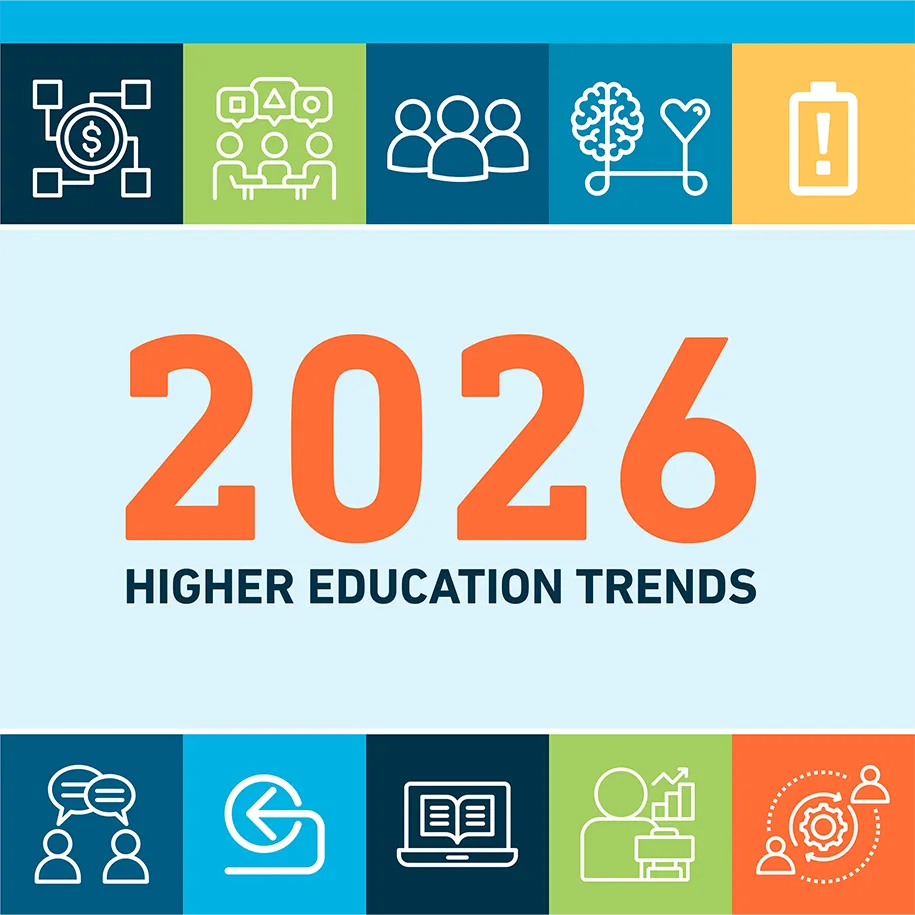
UPCEA + InsideTrack report sheds new light on the adult learner inquiry experience
Learn how data-driven insights can help you strengthen your school’s enrollment process
What is the inquiry process like for adult learners who show interest in school? Do they get a timely response when submitting an online request… or a reply at all? Do they receive information specific to their potential area of study… or something generic? Is the Request for Information (RFI) form short and simple… or lengthy, asking for information they consider too much, too soon?

Taking a deeper dive into the adult learner inquiry experience is the catalyst behind Looking Toward the Future: Enrollment Strategies and Evolving Expectations of Potential Inquirers — the latest report from UPCEA and InsideTrack. For a sense of the insights and data you’ll find in the report, read on! Then be sure and download the complete report to get the full, in-depth story.
Three areas of inquiry analysis
With a steep decrease in enrollment rates since the onset of the COVID-19 pandemic, attracting prospective students and retaining existing ones has become more important than ever. While the ability to attract and retain students is dependent on multiple variables — including tuition costs, school location, program options, sense of fit and belonging, and personal preference — there are critical strategies schools can use to increase the likelihood of turning prospective students into enrolled ones.
Looking Toward the Future: Enrollment Strategies and Evolving Expectations of Potential Inquirers looks at three different aspects of the enrollment process: the higher education admissions funnel, the institution’s role in inquirer engagement, and the type of information collected on RFI forms.
1. Exploring enrollment funnel metrics
To better understand enrollment funnel metrics, UPCEA analyzed data pertaining to inquiry, application and enrollment processes. The study aimed to gain insights into the use of Online Program Managers (OPMs), as well as RFI forms by Professional, Continuing and Online (PCO) education units. A sampling of key findings includes:
- 19% of institutions don’t actively track their enrollment funnel metrics
- The overall inquiry-to-matriculation funnel rate is 10.4%
2. Logging data from a secret shopper analysis
Every day, your admissions department gets dozens of inquiries from prospective students. These would-be students fill out the form, click send…and then what?
Over an 11-week period, UPCEA and its Center for Research and Strategy conducted a benchmark secret shopper analysis to find out. During that time, UPCEA staff inquired about five different programs at 200 different institutions — logging 1,000 requests for information in all. Requests were made via RFI forms on the school’s website and through a department email listed as the contact for a given program, and only responses sent from actual people were counted. A sampling of key findings includes:
- 40% of all inquiries placed did not receive a response
- 30% of responses were received the same day the inquiry was submitted
3. Analyzing different types of RFI forms
It’s no surprise that every institution has their own set of questions on an RFI form. What is surprising is how much prospective students dislike lengthy RFI forms — especially when they ask for what prospects considered an “excessive” amount of personal information.
In the end, forms that met the needs of the prospective students did better than those built around the institution’s needs. A sampling of key findings includes:
- RFI forms asking too many personal questions and questions overall are a deterrent for prospective students
- RFI forms requiring GPA, work phone and family contact information are considered “excessive”
Room for improvement in the enrollment process
Along with research and statistics, Looking Toward the Future: Enrollment Strategies and Evolving Expectations of Potential Inquirers also provides strategies that institutions can use to improve the enrollment experience for adult learners. Slow response times, lengthy RFI forms and technical problems with RFI forms and web pages, for example, are areas that can be easily improved. In order to better attract and matriculate inquiries, promptly send personalized responses when an RFI is submitted, and foster genuine and supportive engagement throughout the inquiry process.
These are just some of the many suggestions for improvement you’ll find throughout the report. Be sure to download the entire report to get the full, comprehensive enrollment story.
Using the power of coaching to keep adult learners on track
So what do you do with all this information? How can you take the statistics and lessons learned in the report to make your enrollment process even stronger? At the end of the day, students are looking for personal, authentic connections. That’s why it’s so important to make sure your enrollment process works for your learners, not just for you.
For additional support, InsideTrack’s holistic coaching solutions offer a tailored approach designed to help both learners and institutions succeed — including coaching specifically geared toward enrollment. Research-proven coaching methodology can not only increase your conversion and yield, it can also help prospective students define long-term goals, identify the best program fit, connect to resources, prepare for registration deadlines, and ultimately feel a stronger sense of belonging. As a result, they’re ready to start strong — committed to your institution and their futures.
Working with a dedicated enrollment coach, students learn to define their long-term goals and select the right program for them. They develop the mindset, skills and beliefs that lead to success. And they identify challenges and create plans to overcome them. By experiencing meaningful engagement that fosters a sense of community upfront, students are more likely to enroll and thrive throughout their time with you, staying on track to achieve their goals.
Looking Toward the Future: Enrollment Strategies and Evolving Expectations of Potential Inquirers
Ready to learn more about how prospective students view enrollment challenges — and how to tailor your processes to make their enrollment easier?
Coaching solutions proven to advance all learners
Whether you’re looking to help students persist through completion or to improve career outcomes for job seekers and employees, our holistic coaching solutions can help you achieve meaningful outcomes.



